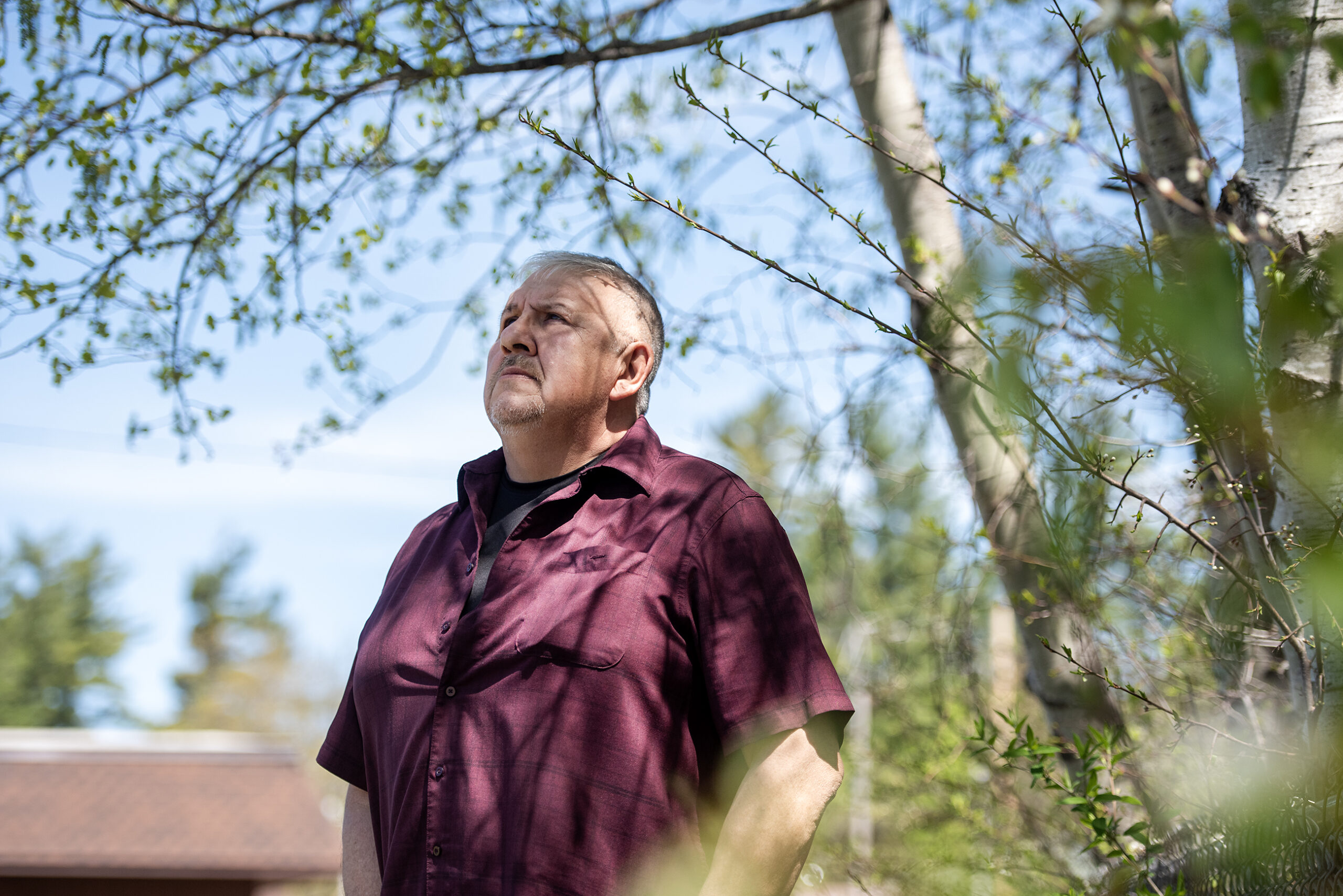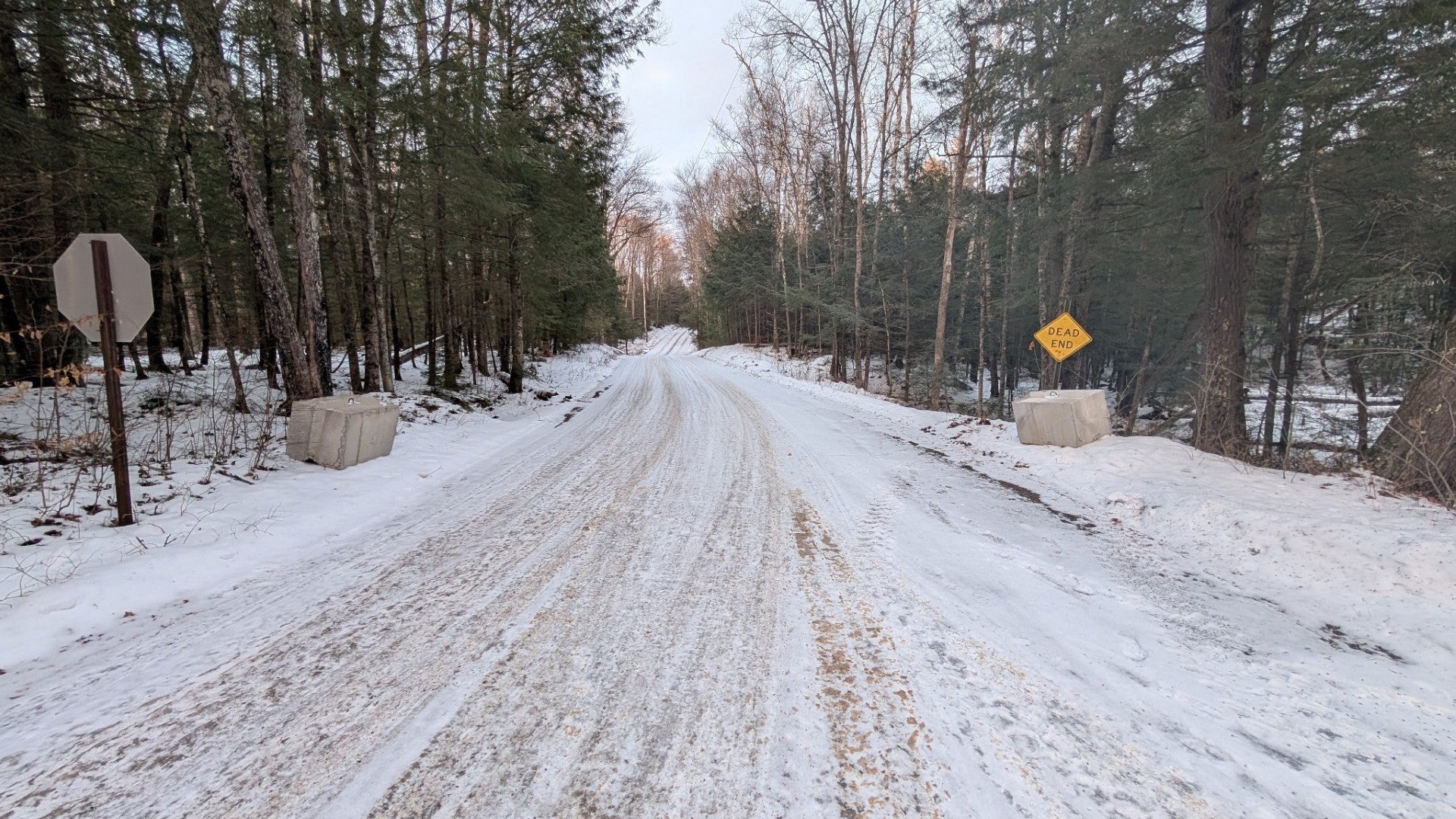With a deadline approaching, a northern Wisconsin tribe has readied barricades on roads at the heart of a longstanding dispute with the town of Lac du Flambeau, sparking fears that homeowners will once again face restricted access to their properties.
Lac du Flambeau homeowners said concrete barriers had been placed along the side of four roads early Wednesday, including Elsie Lake Lane, Center Sugarbush Lane, East Ross Allen Lake Lane and Annie Sunn Lane.
Two years ago this month, officials with the Lac du Flambeau Band of Lake Superior Chippewa blocked the four roads after negotiations failed between the tribe, the town of Lac du Flambeau and title companies over expired easements on the routes that cross tribal lands. While the tribe reopened the roads weeks later, it’s been granting access in exchange for monthly payments that town leaders say they can no longer afford.
In an Oct. 18 letter, Lac du Flambeau Tribal President John Johnson Sr. gave the town until Jan. 16 to pay outstanding fees to the tribe, saying “failure to pay will result in restricted access over the four roads.”
The reappearance of barricades has been unsettling for more than 70 homeowners who rely on the roads to reach their properties within the tribe’s reservation, including Rachel Pearson.
“To be honest, I absolutely broke down and was bawling,” Pearson said. “I think in my heart of hearts, I had hoped that we weren’t going to go down this road again.”

Town board members either declined or didn’t return requests for comment. In a statement, Johnson said it’s frustrating the town has avoided meaningful conversations about the dispute despite “multiple attempts” by the tribe to meet.
“The Town’s inconsistent statements — publicly declaring inability to pay, then making partial, last-minute payments, while also putting forward settlement proposals that disregard our central concerns — demonstrate a lack of transparency and good-faith intent,” Johnson said.
Stay informed on the latest news
Sign up for WPR’s email newsletter.
However, homeowners contend the tribe is being disingenuous. The town previously invited tribal leaders to an August meeting with state and federal officials, which tribal officials did not attend.
Tribe seeks meeting, but town’s attorney advises against talks
In a Dec. 6 letter, Johnson invited the town board to meet with the tribal council without attorneys present on Dec. 19 to “foster positive and constructive dialogue.” Town Chair Matt Gaulke responded in a Dec. 9 letter that two of its three board members were out of the state or country on that date.
“On behalf of the Town Board, we welcome such a meeting and look forward to engaging in positive dialogue with the Tribe in the future,” Gaulke wrote.
However, Gaulke wrote in a follow-up letter on Jan. 3 that the town’s legal counsel advised board members not to meet with the tribal council “due to the sensitive nature of the pending litigation involving the Town.”
In 2023, the federal government sued the town on behalf of the tribe for trespassing. The town and homeowners have also filed their own legal challenges against the Bureau of Indian Affairs over access to roads. A trial is scheduled for May 19.
The town has paid at least $600,000 to the tribe to maintain access to the four roads, depleting its entire roads budget last year. It last paid $50,000 for access permits in August. That prompted homeowners to seek a court order to prevent the tribe from taking steps to block the roads.

Judge has said he may consider barring tribe from limiting access
Last year, U.S. District Judge William Conley issued an order that temporarily barred the federal government from limiting access to the roads, but he stopped short of including the tribe. Even so, Conley said it was the court’s expectation that roads will remain open for homeowners during litigation. He added that he would consider expanding the order to include the tribe or Bureau of Indian Affairs if they take action before a final ruling in the case.
Lac du Flambeau homeowner Dave Kievet said Wednesday the judge had been notified that the tribe had returned barricades to the side of the roads.
“People are frustrated, and I don’t honestly know what’s going to happen if they block those roads off again,” Kievet said. “I sure hope that the federal judge is thinking about that, and actually does something proactive before we get to the 16th of January that helps disarm this whole situation.”

Homeowners worry about limited access amid lack of snow
In 2023, Pearson and others resorted to using snowmobiles to traverse woods and frozen lakes to access vehicles they had parked at neighboring properties to get to and from their homes. While area lakes have frozen, she said little snow on the ground means homeowners would be forced to make their way on foot.
Kievet said many homeowners aren’t interested in leaving, noting they would be forced to sell their homes at a loss. The road closures have already caused the value of homes on affected roads to drop 75 percent or more for residents like Pearson. She said this is only the beginning.
“Wherever we end up on this issue, the tribe is ready to go to the next road, so this isn’t going to end with us,” Pearson said.
In October, the tribe also demanded the town stop maintenance and surrender possession of three additional roads crossing tribal lands. Otherwise, tribal officials said they would consider the town in “unauthorized trespass” and consider exercising its rights under federal regulations, which could include evicting the town from those lands. In November, the town denied the tribe’s request.
Kievet said the federal government is responsible for resolving the dispute since past federal policies like the Dawes Act broke up reservation lands, resulting in them falling out of tribal ownership.
“I’m not disputing that the tribe doesn’t have a legitimate right to be upset about how that all came to be, but, again, they’re dealing with the wrong entity,” Kievet said.
The tribe initially sought $20 million in damages for what it said was trespassing by the town. Since then, tribal leaders have asked for almost $10 million, and they want to grant annual leases in exchange for a fee equal to 1.5 percent of the fair market value of homes along the four roads.
Tribal leaders have said they’re open to trying to mediate the dispute provided the tribe doesn’t have to give up more of its rights or sovereignty.
Wisconsin Public Radio, © Copyright 2025, Board of Regents of the University of Wisconsin System and Wisconsin Educational Communications Board.



